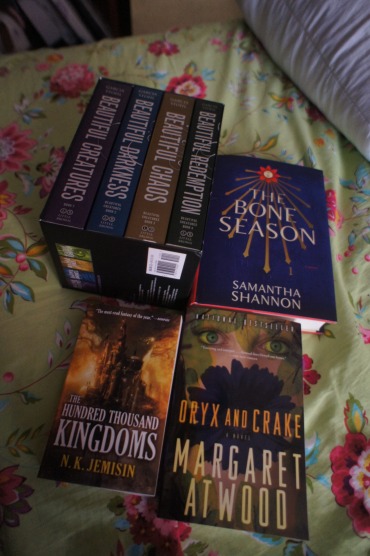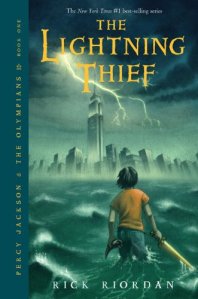 Title: The S.E.A. Write Anthology of Thai Short Stories & Poems
Title: The S.E.A. Write Anthology of Thai Short Stories & Poems
Author: Various; Edited by Nitaya Masavisut and Matthew Grose
Genre: Short stories/poetry
Rating: 3/5
The The S.E.A. Write Anthology of Thai Short Stories & Poems is a compilation of works by authors who have won the S.E.A. Write award from the early 1980s to the mid 1990s. The anthology covers five short story authors and six poets, which is a lot for such a small anthology of less than 150 pages. This anthology is more informational than enjoyable, in my opinion, mostly because of its wide range of authors. The anthology does a good job of showing the diversity of Thai writers and their writing styles, but it leaves something to be desired. I found myself wanting to read more by most of these writers beyond the two or three works included in the anthology, but translation of these works still do not exist today. The anthology itself is outdated as the most recent work is from 1995. I found the short stories infinitely more enjoyable than the poetry, but I think that is more of a translation issue than anything else. Poetry is rhythmical and the meaning is incredibly difficult to translate, even more difficult than a short story or novel.
My feelings of frustration did not keep me from enjoying the writing itself, though. A number of short stories stood out to me as brilliant works which hit various themes of Thai life which were familiar and others that were new to me. The first is “The Song of the Leaves” by Vanich Charungkij-anant, which tells the story of a grandmother deeply involved in a folk music tradition that is dying out around her. She tries to get her granddaughter involved, but with no success. The old woman can feel her life coming to an end, and she worries for her granddaughter whom she’s been supporting through her music, but more than anything else music is always on the grandmother’s mind. She goes to another performance and finds her eyesight going. Her granddaughter comes to her aid, and then next thing everyone sees is the granddaughter climbing the stage and performing in a voice that could only be her granddmother’s. The story crosses the lines of the realistic and the spiritual while describing an aspect of Thai culture I hadn’t read about before.
Two stories which touched on familiar themes were “The Beggars” by Anchan and “Mid-Road Family” by Sila Khomchai. “The Beggars” describes the life of a beggar couple both through their eyes and the eyes of those around them. They stop a monk on his daily alms trip and the monk wonders briefly if they’re going to attack him, but they give him a small offering of cooked rice. A rich couple pass by the beggar woman on the street and the girl, a young celebrity, hands her a 500 baht note (a little less than $20), just to see her react to the amount. The young woman says, “But it’s really a very good thing… that some awfully poor people do exist.” Her boyfriend counters with, “And makes themselves useful for being poor,” poking fun and playfully criticizing the shallow inspiration the actress finds in the beggar’s reaction to money. The reactions to the couple and how society uses them- in one rage-inducing section the author describes the artists and writers who are similarly inspired by the couple without ever offering them aid- contrasted against the couple’s simple but pure way of viewing their world is eye-opening to anyone familiar or unfamiliar with the beggar culture in modern Thailand.
“Mid-Road Family” was a much more lighthearted read, thank goodness. This story touches on a very familiar aspect of life for anyone living in or around Bangkok- the insane levels of traffic. The narrator of the story is a man who loves his car and sees it as another home simply because of how much time he spends in it. He describes how his wife will prepare them for daily outings with all of the necessities for sitting in traffic: food, drink, a change or clothes, even a portable toilet. The narrator never seems frustrated or surprised at the levels of traffic, but conveys the extreme amount through the things he does to pass the time. He gets out of the car to stretch and meets people, which sometimes leads to good business opportunities. A man invites him to start planting a banana garden in a median in the road so the two spend some time gardening and chatting while not a car moves around them. In the midst of traffic hell the man sees his car as an air-conditioned oasis. In the end, the narrator learns that his wife is pregnant, when their last sexual encounter also took place in the car during heavy traffic. And his reactions is priceless:
I gasp, go cold like a log for a second or two before shouting hurray to myself- Chaiyo! Chaiyo! She vomits into the plastic bag. The noise and smell do not bother me at all. I merely want to leap out of my car and cry out:
“My wife is pregnant! Do you hear? She’s pregnant! We did it on the road.”
If you’re looking for just a taste of Thai literary style, I recommend this anthology. For someone like me, who wants to read more when she finds an author whose style she likes, you might also find this anthology one big tease. The short stories and poems do a very good job of introducing modern aspects and themes of Thai life to the newly acquainted reader.
–
Hooray, my first book review of 2014! I’m proud to say that I’ve already finished my second book as well. Expect another review in the next couple days.







